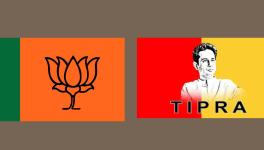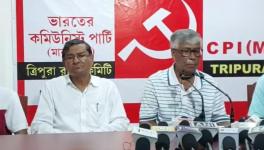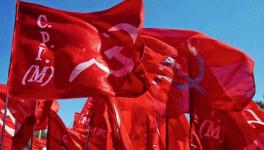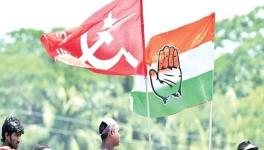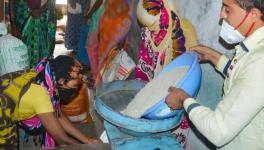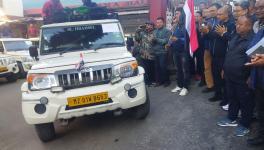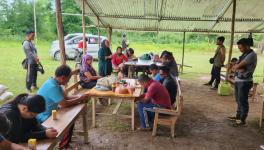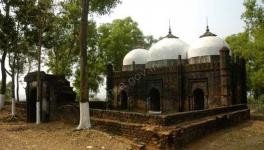Why the 4-Party Agreement Might Not Solve Bru Refugees’ Problems
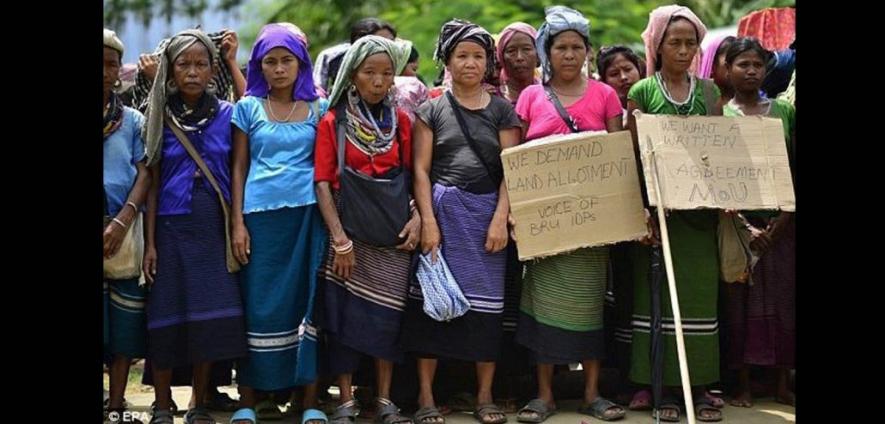
Image Courtesy: Northeast Now. Bru Refugees
A four-party agreement was signed on Thursday, January 16, between the Centre, the Mizoram government, the Tripura government, and an apex body of the internally displaced Brus in the presence of Home Minister Amit Shah to arrive at a solution for the Bru repatriation issue. This issue been ongoing for the past 22 years. This agreement will allow the displaced refugees to permanently settle in Tripura, where they have been living in camps for over two years now.
The Tripura government will hold a census within 15 days to ascertain the number of Bru refugees and provide them land for resettlement to resolve the 22-year-old refugee crisis. Under the pact, Rs 4 lakh will be given to each Bru family in a fixed deposit account, Rs 5,000 per month for two years, a plot of land in Tripura and ration for two years. For all such assistance, the central government will provide Rs 600 crore.
Mizoram Bru Displaced People’s Forum (MBDPF), the apex body of the displaced Brus had expressed displeasure before signing the agreement, saying that they want to go back to Mizoram. According to a report, Bruno Msha, general secretary of the MBDPF, had said, “We want to return to our homes in Mizoram, but without ensuring our safety, security and livelihood, how can we go back amidst uncertainty?”
Also read: Bru Refugees Unhappy with Proposed Agreement to Stop Repatriation
The MBDPF has now accepted the agreement, and welcomed the pact, as they will be receiving all the benefits they have been struggling for. However, a local civil society body of Kanchanpur—where the Bru refugees have been residing in camps for the last 22 years—comprising non-tribal members expressed its unhappiness over the agreement. President of Nagarik Suraksha Mancha Ranjit Nath told Northeast Today, “We are not happy with the agreement because these Brus were responsible in many ways for damaging ethnic solidarity of tribals and non-tribals at Kanchanpur.”
Talking to NewsClick, Jitendra Choudhury, president of Ganamukti Parishad (Tripura State Tribal People’s Liberation Council), said, “We had asked that the decision about the agreement be taken after talking to all the political parties present in the states of Mizoram and Tripura. However, no such meeting was held. The decision was taken by the two state governments and the Union government. Even the MBDPF was informed only after the decision was taken. We are not opposing the pact, we welcome it, but we do not agree with the way it was done. All the stakeholders should have been consulted before such a huge decision.”
He added that this agreement might lead to problems between the non-tribal and the tribal population of Tripura. He explained that the tribal populace has been in favour of the Bru refugees settling in the state. However, the non-tribal, especially the Bengali populace do not completely agree with this pact. Choudhury said, “This conflict might not have arose if all the stakeholders had been asked for their opinions regarding the issue.”
The Bru people inhabit an area consisting of parts of Mizoram, Tripura and the Chittagong Hill Tracts in Bangladesh. In Tripura, they are known as Reang, whereas the people inhabiting Mizoram prefer to be called Bru. The tribe is not a part of the larger Mizo identity, and forms one of the minority communities in the state. In the year 1997, the Bru National Union (BNU) passed a resolution demanding an Autonomous District Council, which was strongly opposed not just by the government, but also by the powerful Young Mizos Association [Mizo Zirlai Pawl (MZP)].
The demand for political autonomy was rejected, and the hardline elements within the movement launched an armed struggle. In 1997, the Bru National Liberation Front (BNLF) allegedly killed a Mizo forest guard in Mamit district. The killing received widespread condemnation, and was followed by ethnic riots, forcing 35,000 to 40,000 Bru villagers to flee Mizoram and seek shelter in camps in Tripura.
Also read: Six Bru Refugees Die in Tripura Due to Starvation
The refugees have lived in refugee camps in Tripura for over 20 years. According to a relief package announced by the government six months after Bru migrants’ arrival in Tripura in 1997, 600 grams of rice are provided daily to every adult Bru person living in the camps and 300 grams of rice are allotted daily to minors. The package also has provisions for cash dole of Rs 5 per adult per day, Rs 2.5 for every minor in a day, a soap in one year, a pair of slippers every year and a mosquito net in every three years.
In October, 2019, the supply of rations to the refugee camps was stopped on the instructions of the Home Ministry in a bid to hastily complete the repatriation of the refugees to Mizoram. This led to large protests by the refugees. Following the stoppage of rations, at least six refugees, including four children, had allegedly died due to starvation.
The central government had asserted that its ninth attempt to repatriate the Brus would be the last one, following which it would no longer offer any rehabilitation package. Of the 4,477 families identified as bona fide residents for repatriation during the last round, only 289 families had returned during the last round of the exercise.
Get the latest reports & analysis with people's perspective on Protests, movements & deep analytical videos, discussions of the current affairs in your Telegram app. Subscribe to NewsClick's Telegram channel & get Real-Time updates on stories, as they get published on our website.










